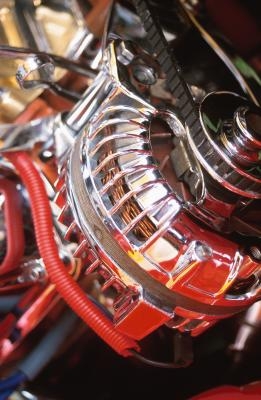
The alternator is responsible for powering a car's electrical system, providing the main conduit between the car's engine and its battery. Although you many not initially notice a failing alternator because the battery has stored enough power to operate the electrical system, eventually the battery will lose its charge and the car will be unable to start.
An alternator is essentially composed of three smaller alternators that each supply varying levels of power. Each power level has its own pair of diodes. Over time, the diodes can break down. Each time a pair of diodes fails, the remaining functioning diodes bear a greater share of current capacity. As long as you have at least 1/3 capacity provided by a pair of diodes, the car will still operate. When all three diode pairs fail, you will be unable to activate the car's electrical functions, including windshield wipers, heat and lights.
Alternators revolve on high-precision needle bearings that you generally cannot hear. When the bearings become defective, the alternator produces a loud rumbling noise, which sounds like metal rubbing against metal. When the bearings no longer work, replace the alternator.
An alternator must have a field voltage of 12 volts to produce electricity. Use a voltmeter to review whether enough volts are transmitted to the alternator. Too few volts can diminish the alternator's performance.
Alternators use a rotating belt to generate power. A belt can become loose and slip as it wears. If you examine the alternator and find that the belt nearest the pulley is glossy or fissured, it needs replacing.